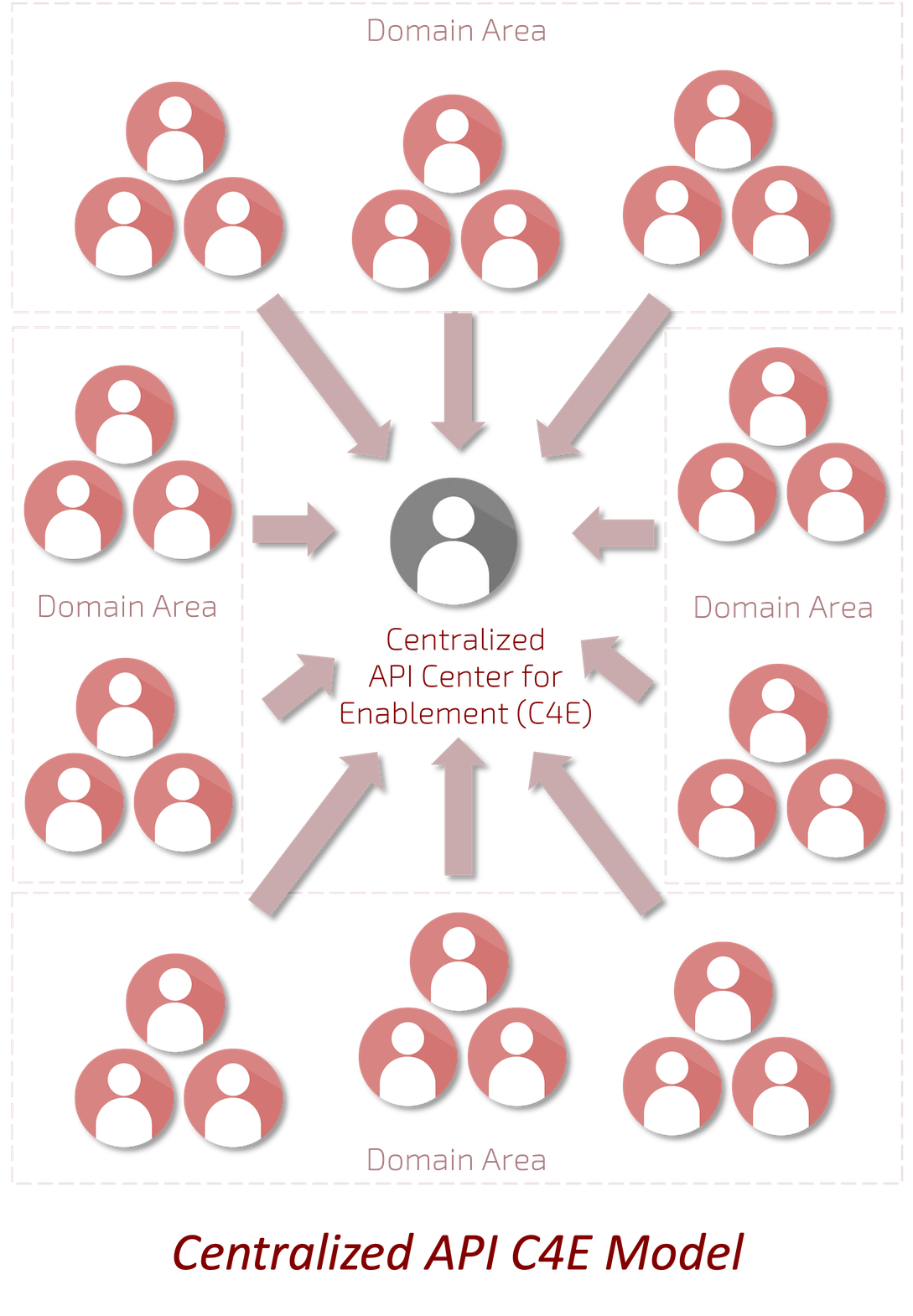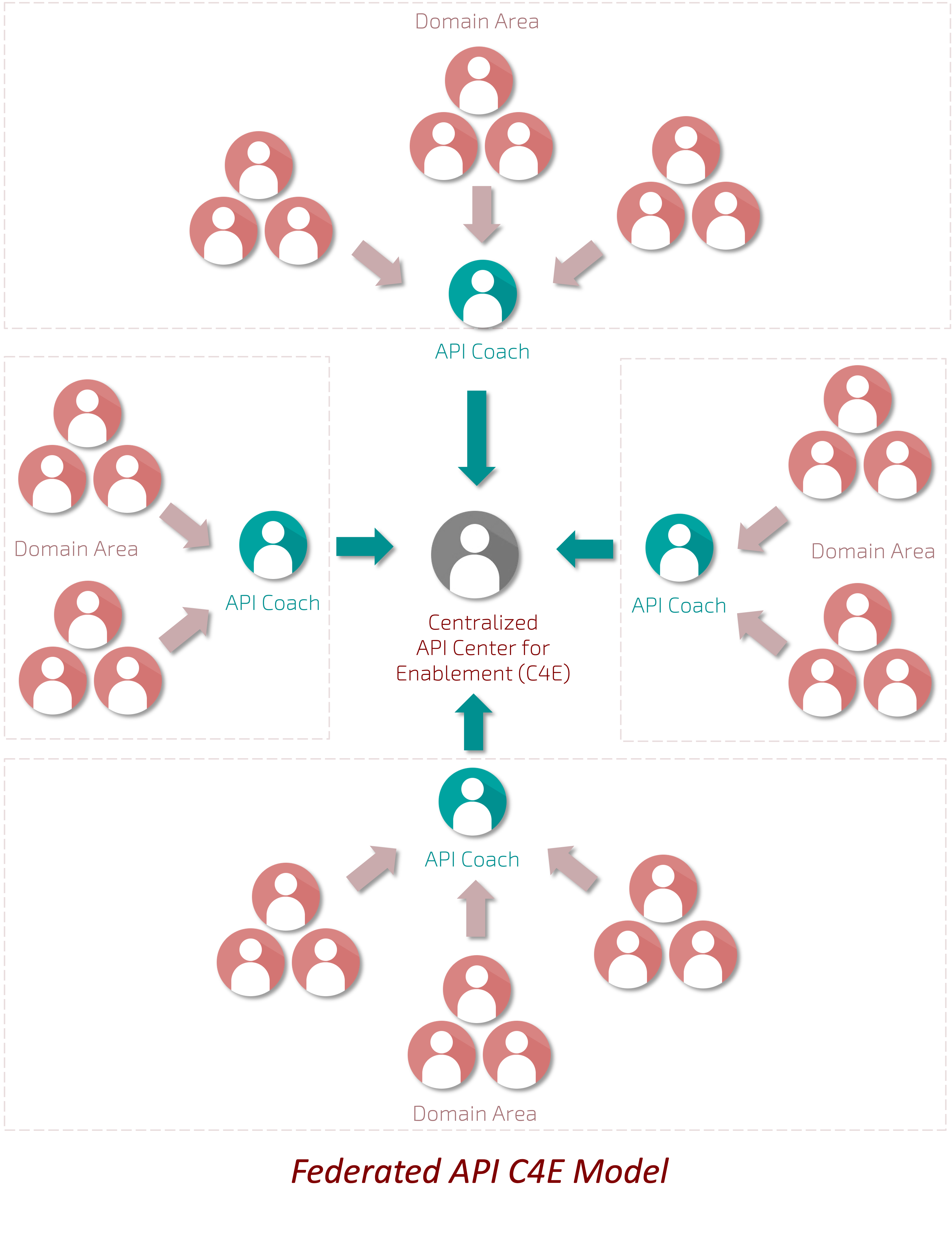Scaling Your API Program with Federated API Coaching
We’ve worked with organizations in a variety of different business verticals, from banking to commercial insurance and healthcare. Universally, one of the biggest challenges for any organization is the difficulty in scaling their API program.
Most API programs have already established their community of standards and practices. Yet, their request queue continues to grow, with no end in sight. Every day seems like a scene from the “I Love Lucy” episode with the conveyor belt of chocolate, speeding up and never slowing down.

Live view of your API program trying to scale as more requests are queued up.
In this article, we will explore some of the root causes of an overwhelmed API program and how to overcome them successfully through an approachable, scalable process that extends the reach of your API expertise across the organization.
Why is your API Center for Enablement (C4E) overwhelmed?
Nearly every API program I’ve assessed has a feeling of being overwhelmed. Requests for design reviews are stacked up and every day yields more meeting requests. Then comes that high-profile API that will need personalized attention as they design an important, partner or customer-facing API.
The root cause of an overwhelmed API C4E is limited resources. There just isn’t enough time in the day to handle every request. It takes time to understand a line of business, the problems they face, and how their API goals align (or don’t align) with the overall API portfolio of the organization.

Perhaps the limitations are due to budget constraints that prevent the API C4E from hiring sufficient staff to handle the large amount of requests for API design reviews and facilitated design sessions. This places the burden of the organization upon the shoulders of one or a few specific people familiar with APIs.
Another reason may be a lack of trained product and technical leaders due to limited time for the API C4E to conduct proper training sessions. I’ve witnessed circumstances where the API C4E is simply unable to find sufficient time to create and deliver API-related training.
Finally, it could be that the organization is simply so large that there will never be enough API C4E staff to handle the many teams across the lines of business. In these circumstances, you will never be able to hire sufficient staff to handle hundreds or even thousands of teams delivering APIs across the enterprise.
The API C4E has limited time available to answer API-related questions from teams across the organization. This becomes a bottleneck for the organization, resulting in slow response times and lost opportunities to help teams when they need it.
Establishing a formalized API coach program helps to equip people all over the organization to better support teams when and where they need API guidance. Let’s take a look at the role of API coaches and how you might consider incorporating them into your API program.
How API coaches help scale your API program
While the API C4E wishes to help every team with their API design needs immediately, limited resources present scaling issues. Members of a C4E are unable to keep up with the latest initiatives across the organization. In addition, they often lack the necessary domain understanding, requiring more time to be effective when offering API design guidance.
An effective API program recognizes that the API C4E cannot be available all the time, instead opting to equip qualified individuals with the resources they need to support teams within their area. These individuals bring their unique technical and product talent, combined with their understanding of the domain area, to teams that need additional guidance throughout the API management lifecycle.
API coaches are an extension of the API C4E
API coaches enable an API program to scale across the organization by becoming an extension of the API C4E across all lines of business. They are able to engage with teams within their specific domain of expertise to provide API design feedback, guidance regarding standards and practices, and facilitate sessions for high-profile initiatives.
When necessary, the C4E provides a central place for API coaches to raise issues or gain assistance, but otherwise the API coaches operate independently. The opportunity for collaboration with the C4E enables the API coach to bring “in-the-field” knowledge back that can be incorporated into future revisions of the standards and practices. Likewise, the API C4E is able to help API coaches to apply patterns found in other parts of the organization.

While most API coaches operate as a “side-of-desk role” in addition to other responsibilities, some API coaches may be dedicated within a specific line of business or business unit. They apply their deep knowledge of the area as part of their coaching efforts, making engagements more effective and contextually relevant.
Selecting an API coaching approach
API coaching is typically structured in one of three ways:
API C4E Coaches that is dedicated within the C4E to offer general API design guidance across the organization. In this model, the API C4E hires dedicated staff to support the organization. This model works well for small and mid-size organizations, but doesn’t scale well for larger organizations.
Domain API Coaches focus within a specific domain area, line of business, or business unit. Domain-level API coaches are more familiar with the day-to-day needs and specifics of their assigned area compared to the API C4E. This model works well for organizations that require very specific domain expertise, or for larger enterprise organizations.
Hybrid coaching mixes the first two models, allowing for centralized coaching when domain API coaches are unavailable or need additional assistance. This model is often used only for a limited period of time while domain API coaches are being trained.
Identify the model that best fits the needs of your organization. If you are uncertain, start with API coaching from the API C4E. Over time, train your API leaders and certify them for coaching within their respective domain areas.
Getting started with API coaching
Implementing an API coaching program requires time and effort. The API C4E must put focused effort into designing sufficient resources and processes to support API coaches. Start by ensuring your API standards and practices are clear and easily accessible. Doing so will ensure that the coaches feel supported and limit the number of times they have to reach out to the API C4E for assistance.
Once you have the necessary resources in place, such as API standards and practices, and have trained up your API coaches, start simple. Offer weekly office hours for anyone to join if they have a question. Allow your API coaches to shadow and then lead these weekly meetings.
You may also wish to offer a list of certified API coaches on your API C4E website, so that people looking for additional design guidance know who is certified in their domain area. Capture guidance as new questions arrive, to help support your coaches over time.
Organizations embarking on this journey must ensure they have support from their managers and executives so that sufficient resources are available to grow the program once established. Otherwise, the API coaching initiative will languish.
Is an API coach program a good fit for your organization?
Does API coaching seem like a good fit for your organization? Be sure to start small, perhaps with one or two API coaches to start. Establish the necessary resources and processes to help them be effective. Communicate their availability on an as-needed basis at first, then seek to promote the program to a broader audience when they are ready. As the program grows, be sure to capture metrics and case studies that demonstrate the positive results of having an API coaching program. This will help to justify the effort put forth and quantify the number of new API coaches required as demand increases.
Did you know that LaunchAny has helped accelerate the creation of a formalized API coaching program? We deliver packaged training, perform assessments of your API program to identify areas of improvement, and can facilitate an initial API coach certification to help bootstrap the process. Contact us to find out more.